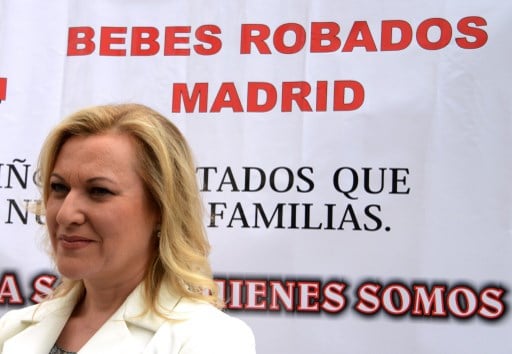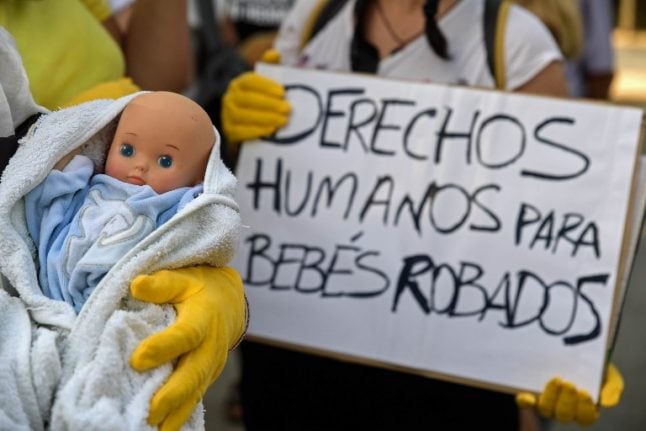But they told her that she had in fact been given up voluntarily for adoption by her mother, public prosecutors said Thursday.
During General Francisco Franco's 1939-75 dictatorial rule, hundreds of babies were taken from their mothers — who were told their children had died — and given to others to adopt, often with the help of the Catholic Church.
Initially, babies were taken from left-wing opponents of the regime, with the practice later expanded to supposedly illegitimate children and those from poor families.
The newborns were meant to be raised by affluent, conservative and devout Roman Catholic families.
Estimates range from hundreds to tens of thousands of victims.
Ines Madrigal, a 50-year-old railway worker, became the first — and so far only — suspected “stolen baby” to bring her case to trial, turning her into one of the most visible faces of the campaign to seek justice for the families who were torn apart.
A Spanish court last year convicted an 85-year-old former gynaecologist, Eduardo Vela, for having taken Madrigal in 1969 from her biological mother shortly after she was born at the now-defunct San Ramon clinic in Madrid.
He escaped punishment, however, because the court decided Madrigal had waited too long to file a complaint.
READ MORE:
- Doctor found guilty but walks free in Spain 'stolen baby' case
- Pain, shock and anger: Two of Spain's 'stolen babies' speak out
- ANALYSIS: The 'stolen babies' trial in Spain finally shines a light on a scandal that cannot be forgotten

But the Madrid public prosecutor's office said Thursday that just a few months later, in March 2019, Madrigal discovered her biological family through a DNA database in the United States.
She learned not only that her real mother had died, but also that she had given Madrigal away voluntarily.
“Her real brothers on her mother's side and an aunt… confirmed that she was 'voluntarily' given up for adoption,” the office said in a statement.
The prosecutors said that it should no longer be considered proven that Vela had stolen a baby as ruled by the court last year.
Madrigal told a Madrid news conference that the fact that her biological mother had given her up voluntarily “does not mean that doctor Vela is not guilty of multiple crimes.”
She said she had met her four biological brothers “who are wonderful people and who have opened their arms and heart to me.”
“For the first time, I have completed the puzzle that is my life,” she added.
Madrigal did not want to reveal the identity of her biological family to protect their privacy.
Suspicions remain that Vela was responsible for other baby thefts.
Courts have rejected most other “stolen babies” lawsuits in the past because the statute of limitations had expired.
READ MORE: Spain takes first step towards historic 'stolen babies' law




 Please whitelist us to continue reading.
Please whitelist us to continue reading.
Member comments